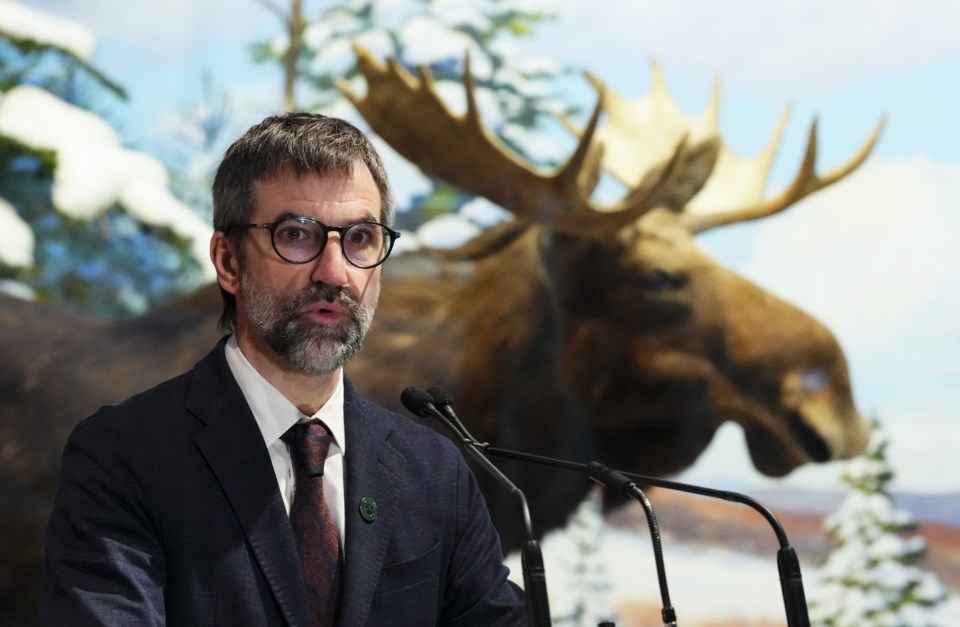OTTAWA — Steven Guilbeault, federal minister of identity and culture, came to his new job just as the whole country was looking at itself in the mirror.
Guilbeault took on the new ministry — which replaces the old heritage ministry and takes up responsibility for Parks Canada — as U.S. President Donald Trump was ramping up a ruinous trade war and talking about annexing his country's neighbour to the north.
In an interview with The Canadian Press, Guilbeault said most Canadians probably hadn't reflected much on their own national identity before Washington changed its tone.
Their reaction — ten years after Guilbeault's old boss, Justin Trudeau, described Canada as a "post-national state" — has been a surge in national pride that culminates today in Canada Day celebrations across the country.
"What we're seeing is a … renewed sense of pride in being Canadian," Guilbeault told the The Canadian Press. "This year, it will take on a whole new role."
Guilbeault said he sees his role as a departure from the former heritage portfolio, which "in its very definition implies that you're kind of looking backwards."
He said his task is to work out what Canadian arts, identity and culture might look like in the coming years — not to attempt to pin down anything like a singular Canadian "identity."
"I won't stand here and pretend that I can tell you what Canadian identity is or should be," he said.
"My role in the coming months will be to work with people across the country … to help perhaps define and better promote our identity, and maybe rejuvenate a sense of unity.
"It would be pretty rich for one member of cabinet sitting in Ottawa to tell all of Canada, 'This is what Canadian identity should look like.' That's not how I roll."
He said he sees his job as one of identifying cultural markers "that people can rally around" — a complex task in a country as big and diverse as this one.
"There's only one language in the United States, there's only one culture," he noted.
In the process, he said, he hopes to encourage Canadians to see themselves in each other.
"I've always been fascinated, for example, by how similar Quebecers and Albertans are," he said in French.
"They are two peoples who are very proud, very autonomist, very independent, in the philosophical sense of the term."
He said those ties of culture and history are important to keep in mind as Canadians stare down American threats to Canada's identity, sovereignty and economy.
"There are a lot of things that bring us together, and this is true for the whole country. And that's what I'm going to work on, over the next few weeks and months," Guilbeault said.
This report by The Canadian Press was first published July 1, 2025.
Dylan Robertson, The Canadian Press




